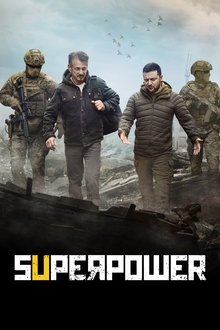As the U.S. planned to withdraw troops from Afghanistan in September 2021, Canadian-Afghan filmmaker and journalist Brishkay Ahmed was filming IN THE RUMBLING BELLY OF MOTHERLAND. Revealing the ongoing dangers for women reporters, and the extraordinary risks they take, this brave film provides an in-depth look into Zan TV, Kabul’s female-led news agency. A professional journalist herself, Ahmed documents both the harrowing and inspiring work of young, female journalists over the course of the two-year lead up to the Taliban takeover of Afghanistan. Following parallel news stories as they unfold – two sets of national elections as well as ongoing U.S.-Taliban peace talks – the film reveals the daily hurdles Afghan female reporters and media staff face, underscoring the existential current events that threaten both Zan TV as a media outlet and the livelihoods of the women at its heart.
Related Movies
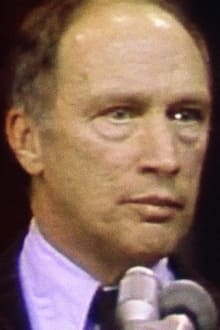
History on the Run: The Media and the '79 Election (1979)
This documentary examines the media's coverage of the Canadian federal election of May 1979. Filmed over a 3-week period, it takes a fascinating look at journalists in action and the politicians who attempt to manipulate the media.

Waltz with Bashir (2008)
An Israeli film director interviews fellow veterans of the 1982 invasion of Lebanon to reconstruct his own memories of his term of service in that conflict.
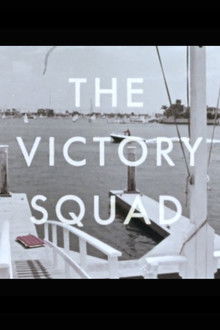
The Victory Squad (1966)
A promotional film about the U.S. Republican party drafting volunteers on Election Day, encouraging their fellow party members to vote and helping them get to their polling place.
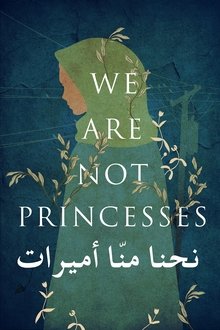
We Are Not Princesses (2018)
We Are Not Princesses is a documentary film about the incredible strength and spirit of four Syrian women living as refugees in Beirut as they come together to tell their stories of love, loss, pain and hope through the ancient Greek play, Antigone.

A Meeting with Milton Santos (2007)
The film deals with the process of globalization based on the thought of geographer Milton Santos, who through his ideas and practices, inspires the debate about Brazilian society and the construction of a new world. Santos discusses his views on the importance of respecting difference and his belief that an alternative globalisation model could wholly enfranchise all citizens of the world. An illustrious presence in 20th century social sciences, the man dubbed as ‘geography’s philosopher’ eloquently elucidates a developing world perspective on the global age.
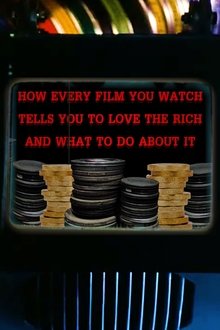
How Every Film You Watch Tells You To Love The Rich and What To Do About It (2019)
"How Every Film You Watch Tells You To Love The Rich and What To Do About It" explores the representations of wealth in cinema. It looks into how most beloved characters are subtly more well-off than they should be, how criticisms of the system are crushed, how the rich have become the average in the world of the cinema. And it shows how these stories distort the view of the real world, and are used against you by politicians.

Pop féminisme : des militantes aux icônes pop (2020)
An overview of 21st-century feminism through the lens of pop culture.
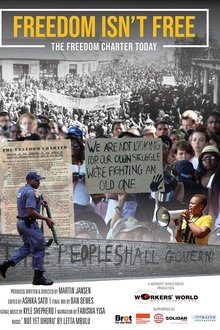
Freedom Isn't Free — The Freedom Charter Today (2018)
Since its adoption in June 1955 by the Congress movement, the Freedom Charter has been the key political document that acted as a beacon and source of inspiration in the liberation struggle against Apartheid. It was reputedly the main source that informed democratic South Africa’s liberal constitution and a constant reference point for the ruling African National Congress (ANC) and rival political parties that it spawned since 1994, all claiming the Freedom Charter’s legacy. Freedom Isn’t Free assesses the history and role of the charter, especially in relation to key political and socio-economic aspects of developments in South Africa up to the present period. It includes rare archival footage with interviews of a cross-section of outspoken influential South Africans.

You've Been Trumped Too (2016)
A timely film exploring the confrontation between a feisty 92-year-old Scottish widow and her family and a billionaire trying to become the most powerful man in the world.
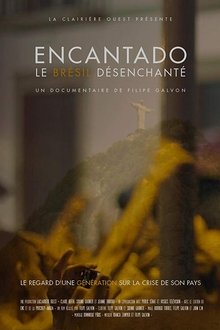
Encantado, le Brésil désenchanté (2018)
Considered for a few years the “country of the future”, Brazil has seen since 2013 a deep disenchantment between the middle and popular classes that culminated with the rise of Jair Bolsonaro to the Presidency in 2018. Enchanted portrays this recent Brazilian history from a homonymous neighborhood of the Rio suburb transfigured by the 2016 Olympics. From Rio to Paris, a political and poetic testimony of Brazil through the eyes of the first generation of the popular class to study abroad.
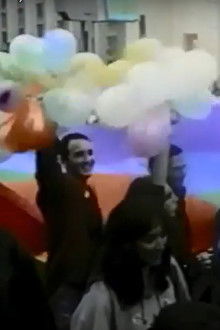
Agnus Gay (1997)
Footage from the first ever São Paulo LGBTQ Pride Parade, which took place on the 28th of June 1997 on Avenida Paulista. The annual event would go on to become the largest pride parade in the world.
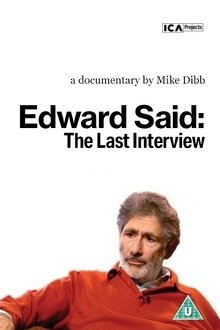
Edward Said: The Last Interview (2004)
Prominent Columbia University English and Comparative Literature professor Edward Said was well known in the United States for his tireless efforts to convey the plight of the Palestinian people, and in this film shot less than a year before his death resulting from incurable leukemia, the author of such books as {-Orientalism}, {-Culture and Imperialism}, and {-Power, Politics, and Culture} discusses with filmmakers his illness, his life, his education, and the continuing turmoil in Palestine. Diagnosed with the disease in 1991, Said struggled with his leukemia throughout the 1990s before refraining from interviews due to his increasingly fragile physical state. This interview was the one sole exception to his staunch "no interview" policy, and provides fascinating insight into the mind of the man who became Western society's most prominent spokesman for the Palestinian cause.
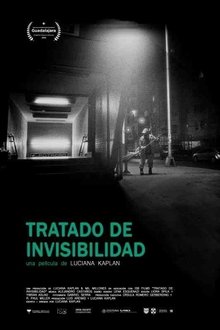
Tratado de Invisibilidad (2024)
A reflection on the concept of invisibility, narrated by women who clean public spaces in Mexico City. Combining documentary, fiction and still photography, the film is an intimate mosaic of testimonies and experiences that highlight the precariousness of work in the cleaning industry, in a world where subcontracting rules.

A Revolution in Four Seasons (2016)
Two politically-opposed young women fight to shape their lives along with the political future of Tunisia, the sole country to emerge from the Arab Spring uprisings as a functional democracy.

The Other Song (2009)
Journeying across Varanasi, Lucknow, and Muzzafarpur in India, this documentary film traces the lost traditions and the culture of tawaifs (courtesans of North India), particularly through a song sung by Rasoolan Bai, "Lagat karejwa ma chot, phool gendwa na maar" and its lesser known, earlier version "Lagat jobanwa ma chot, phool gendwa na maar" (recorded in a 1935 Gramophone recording). Weaving the past with the present, the film spans between personal stories as it interacts with historical events, ultimately leading to the decline of a great art form.
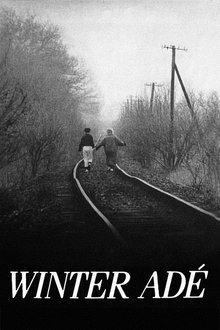
After Winter Comes Spring (1989)
A locomotive journey traversing the North to the South of the German Democratic Republic on the eve of its dissolution. Labourers, punks, mothers, intellectuals, young and old are implored to reflect on their life choices, the sacrifices they've made, and their place in the world. Despite everything, hope persists.
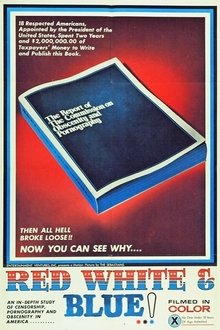
Red, White and Blue (1971)
A documentary about the hearings of President Nixon's Commission on Obscenity, featuring adult-film producer David F. Friedman (one of the producers of this film) testifying before Congress, and involved in the production of one of his films, "Trader Hornee."
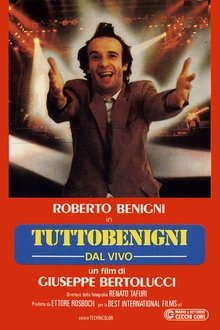
Roberto Benigni: Tuttobenigni (1983)
A young Roberto Benigni in one of his first public show in Florence at Parco delle Cascine.

Information for/from Outsiders: Chronicles from Kashmir (2019)
Chronicles from Kashmir seeks to create a sense of “balance”: between differently positioned voices that emerge when speaking about Kashmir; between differently placed narratives on the “victim”/“perpetrator” spectrum. While there is an inevitable streak of political commentary that runs throughout the work – a political current that cannot be escaped when talking about Kashmir – Chronicles from Kashmir does not espouse any one political ideology. We see ourselves as being artists and educators, using aesthetics and pedagogy to engage audiences with diverse perspectives from/about the Valley.
